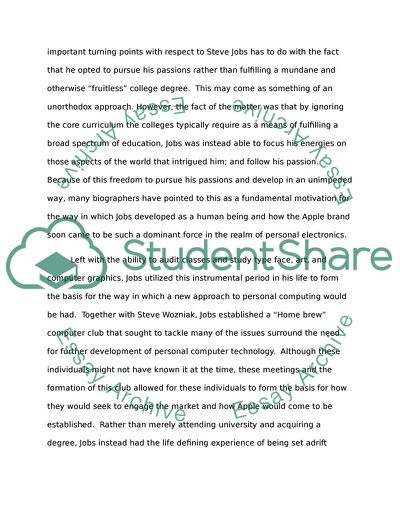Cite this document
(Steve Jobs - A Biographical Discussion of What Made This Business Lead Essay, n.d.)
Steve Jobs - A Biographical Discussion of What Made This Business Lead Essay. Retrieved from https://studentshare.org/biographies/1825224-steve-jobs
Steve Jobs - A Biographical Discussion of What Made This Business Lead Essay. Retrieved from https://studentshare.org/biographies/1825224-steve-jobs
(Steve Jobs - A Biographical Discussion of What Made This Business Lead Essay)
Steve Jobs - A Biographical Discussion of What Made This Business Lead Essay. https://studentshare.org/biographies/1825224-steve-jobs.
Steve Jobs - A Biographical Discussion of What Made This Business Lead Essay. https://studentshare.org/biographies/1825224-steve-jobs.
“Steve Jobs - A Biographical Discussion of What Made This Business Lead Essay”. https://studentshare.org/biographies/1825224-steve-jobs.


